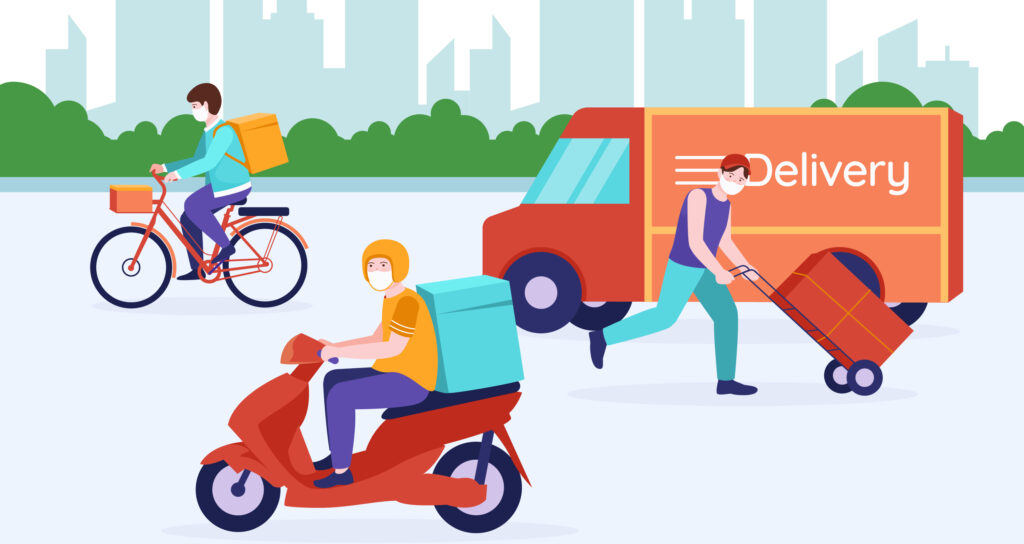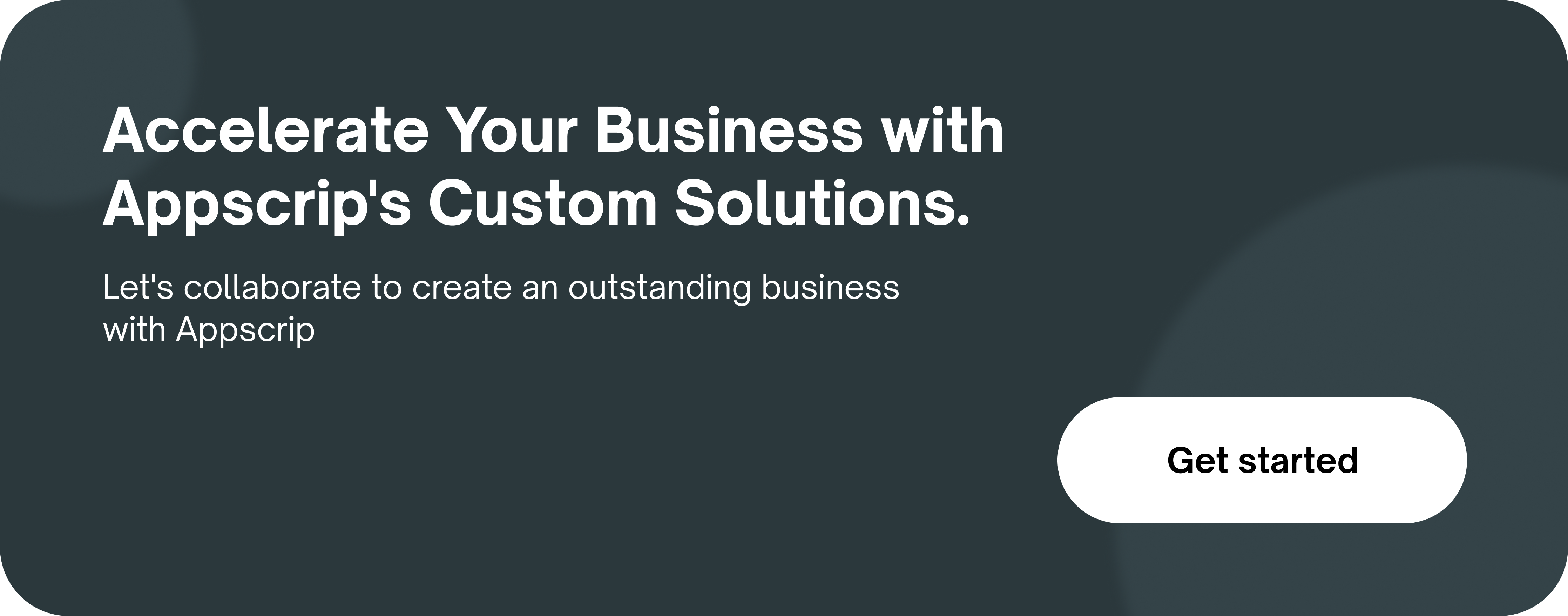In recent years, Bolt has emerged as a prominent player in the transportation and delivery industry, offering a range of services including ride-hailing, food delivery, and e-scooter rentals. The company’s rapid rise to prominence has been accompanied by a surge in interest in its business model.
Understanding the Bolt business model is crucial for gaining insights into its success and the dynamics of the on-demand service industry as a whole. This blog delves into the intricacies of Bolt’s business model, exploring its key components and shedding light on why it is essential for both industry professionals and consumers to comprehend this model.
Bolt’s Core Offerings
Bolt has three core services that have the most number of users, and from where it gets the major share of revenue.
Ride-hailing
Bolt operates as a ride-hailing service, with a presence in over 400 cities across Europe and Africa. With a strong focus on customer satisfaction, Bolt’s ride-hailing division boasts over 700 personnel dedicated to implementing customer-centric solutions in the cities they operate in. The company has garnered a customer base of around 100 million in 45 countries, providing safe and reliable transportation services.
Food Delivery
Bolt has expanded its services to include food delivery, offering online food deliveries in various markets, with an initial rollout of self-driving robots for food delivery in Tallinn, Estonia. The company has partnered with the robotics firm Starship Technologies to introduce this innovative service, targeting sustainable and efficient local transportation solutions.
Parcel Delivery
Bolt has ventured into parcel delivery services, enabling customers to send and receive parcels through its platform. This diversification of services aligns with Bolt’s commitment to providing comprehensive solutions for its users, leveraging its extensive network and operational capabilities.

Revenue Streams of Bolt
Commission from Ride-Hailing: Bolt generates a significant portion of its revenue through commission fees charged to drivers for completed rides via its platform. The commission ranges from 10% to 25% of the final fare, varying by location.
Additionally, Bolt imposes a 10% service fee for each ride, along with delivery and payment processing fees for compensating drivers and payment networks.
Transaction Fees from Food Delivery: Bolt charges restaurants a commission for every order facilitated through its food delivery platform, although specific rates are not publicly disclosed. It can be assumed to be within the range of 20% to 35%, similar to industry standards.
Delivery Fees from Parcel Delivery: Bolt charges fees or commissions to delivery partners or businesses utilising its platform for parcel delivery services, contributing to its overall revenue diversification.
Bolt Business Model And Unique Selling Proposition
Bolt’s unique selling proposition (USP) revolves around competitive pricing, focus on sustainability, and user-friendly technology, setting it apart from its competitors.
Competitive Pricing: Bolt’s competitive pricing strategy distinguishes it from other players in the transportation and delivery industry. The company offers cost-effective ride-hailing services, providing customers with an affordable alternative for their transportation needs. This emphasis on competitive pricing aims to attract and retain customers seeking economical transportation solutions.
Focus on Sustainability: Bolt’s emphasis on sustainability serves as a unique selling point, aligning with the growing consumer interest in environmentally responsible practices. The company has made strides in promoting sustainable transportation solutions, such as e-scooter rentals and initiatives to reduce carbon emissions from its operations. This focus on sustainability sets Bolt apart from its competitors and appeals to environmentally conscious consumers, enhancing its brand value and appeal.
User-Friendly Technology: Bolt’s user-friendly technology enhances its USP by offering a seamless and convenient user experience. The company’s app and platform are designed to be intuitive and easy to use, providing customers with a hassle-free way to access and utilise its services. This user-friendly technology differentiates Bolt from competitors and contributes to its overall appeal to a diverse customer base.
Partnerships and Collaborations
Bolt has established a diverse range of partnerships to expand its services and provide comprehensive solutions to various customer needs. These partnerships include integration with local businesses, collaborations with restaurants and merchants, and efficient parcel delivery systems.
Integration with Local Businesses
By integrating with local businesses, Bolt business model has found its reach beyond transportation services to become a logistics partner for various types of companies. This integration allows local businesses such as florists, grocery stores, pet stores, and other retail stores to leverage Bolt’s delivery network.
It enables these businesses to offer same-day delivery services, thereby increasing their customer reach and meeting the demand for quick and convenient delivery. Through these partnerships, Bolt provides powerful analytical tools to local businesses, helping them to grow their sales and enhance their visibility.

Collaborations with Restaurants and Merchants
Bolt Food has established collaborations with a wide array of restaurants and merchants, aiming to provide them with a platform that brings more orders and increased sales. By joining Bolt Food, restaurants gain access to loyal Bolt Food customers and millions of users who regularly utilise Bolt’s car ride, electric scooter, e-bike, and car-sharing services. This multi-service customer base can lead to unmatched visibility for partner restaurants and merchants.
Additionally, Bolt Food offers valuable insights into the data behind sales, such as unique users, average order values, and conversion rates. These insights help partners to optimise their performance and decision-making processes.
Partnerships for Efficient Parcel Delivery
Bolt’s partnerships also cater to efficient parcel delivery, ensuring that items from various business sectors are delivered promptly and reliably. The platform’s delivery services are not restricted to food; they extend to other retailers who wish to send products like electronics, alcohol, fashion, and more.
Bolt’s delivery solution helps these businesses to reach more customers and grow their sales. By making use of Bolt’s delivery network, businesses can provide their customers with the convenience of speedy delivery, which in turn, can enhance customer satisfaction and loyalty.
Bolt Technology Infrastructure
Bolt’s technology infrastructure is critical to supporting its various services, including ride-hailing, food delivery, and other offerings. It encompasses the Bolt app with its user interface, robust backend technology for seamless operations, and data analytics for business optimization.
Bolt App and User Interface
The Bolt app is the cornerstone of the user experience, providing an interface for customers to access Bolt’s services like ride-hailing, food delivery, and micro-mobility options. The app is designed to be user-friendly, with a focus on ease of use and intuitive navigation, which helps in retaining and attracting customers. It’s available on both iOS and Android platforms and can also be accessed through a browser using the Bolt Web App.
Backend Technology for Seamless Operations
Bolt’s backend systems are engineered to ensure efficient and reliable operations. These systems handle a myriad of tasks, such as trip dispatching, order management, and payment processing. They are also responsible for the integration with various other services and APIs, including maps, fraud detection, and customer support tools.
The backend infrastructure uses MySQL and TitaniumDB and is crucial for the seamless functioning of the Bolt app and supports the company’s ability to manage a high volume of transactions and services in real time.
Data Analytics for Business Optimization
Data analytics is a key part of Bolt’s technology infrastructure, allowing the company to optimize its business processes and make informed decisions. Bolt’s data platform with Redshift, Kafka, and Presto collects and processes large volumes of data from its operations, which helps in understanding customer behavior, market trends, and operational efficiency.
This data is used to provide insights to partner businesses, such as the number of unique users, average order values, and conversion rates, thereby assisting them in enhancing their performance and increasing revenue.
Conclusion
Bolt’s business model is a testament to the transformative power of technology in the transportation and delivery sectors. With its focus on affordable pricing, commitment to sustainability, and user-friendly technology, Bolt has established itself as a formidable competitor in the global market. Its strategic partnerships and integrations have allowed the company to expand its services and cater to a wide range of customer needs, from simple ride-hailing to complex delivery logistics.
If you’re inspired by Bolt’s innovative approach and are considering creating your own ride-hailing or delivery service, Appscrip’s bespoke app development solutions can help you launch a competitive and technologically advanced platform. With our expertise in crafting custom apps tailored to your unique business requirements, we can help you capitalise on the current trends and position your service for success in the dynamic ride-hailing and delivery industry.









